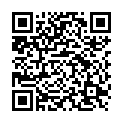|
|
|
| Module code: MBG21-22 |
|
|
- |
|
30 |
| Semester: 7 |
| Mandatory course: yes |
Language of instruction:
German |
Assessment:
[still undocumented]
|
MBG21-22 (P311-0180) Management and Professional Pedagogy in Health Care, Bachelor, ASPO 01.10.2021
, semester 7, mandatory course
|
|
The total student study time for this course is 900 hours.
|
Recommended prerequisites (modules):
None.
|
Recommended as prerequisite for:
|
Module coordinator:
Prüfungsausschuss |
Lecturer: Prüfungsausschuss
[updated 23.03.2021]
|
Learning outcomes:
This module is not offered as a course. It involves the knowledge, skills and abilities that have been acquired as part of the students’ training in their respective health care profession.
Basics of Natural Science Disciplines
Knowledge and Comprehension:
After successfully completing this module, students will be familiar with the principles of human biology relevant for their respective health care profession.
They will be familiar with the principles of applied science relevant for their respective health care profession.
Job-Specific Knowledge
Knowledge and Comprehension:
Students will be able to identify patient needs and requirements based on the respective situation.
Students will be familiar with subject-specific (assessment) tools.
They will be familiar with how care processes are organized, designed and controlled in their respective health care profession.
They will be familiar with internal and external quality assurance measures.
They will be familiar with the health care standards, guidelines, and policies relevant to their health care profession.
They will be familiar with concepts and measures to maintain, restore, promote, activate and stabilize individual patient abilities.
They will know the basics of counseling and guiding patients and their relevant reference groups.
Professional Skills
The Use, Application, and Generation of Knowledge:
Students will be able to assess patient needs and requirements.
They will be able to use subject-specific (assessment) tools.
They will be able to carry out planned measures independently in practice and document them.
They will be able to analyze, evaluate, assure and improve quality in professional practice.
They will be able to identify needs in terms of preventive and health-promoting measures and implement interventions derived from these needs.
They will be able to implement their professional actions as an interactive process, taking into account subject-specific standards, guidelines and directives.
They will be able to assess the possibilities and limits of proposed actions in practice.
They will be able to perform medically ordered procedures independently in accordance with their health care profession.
They will be able to maintain, restore, promote, activate and stabilize individual patient abilities.
Communication and Cooperation:
Students will be able to counsel, guide, and support patients, family members, other professionals, and volunteers in their respective professional contexts.
They will be able to handle the relationship between closeness and distance in a professional manner when dealing with others.
They will maintain open and appreciative communication with patients of all ages, their relatives or social reference groups, as well as members of their interdisciplinary team.
Scientific Self-Concept/Professionalism:
Students will be able to reflect upon closeness and distance in their professional life.
They will be able to reflect upon their work in terms of face-to-face and/or body-to-body action.
They will have developed an ethically based professional self-image.
[updated 15.11.2021]
|
Module content:
[still undocumented]
|
Recommended or required reading:
[still undocumented]
|

